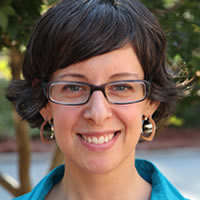
Exploring connection of media fluency to culture and civic engagement
Below, Dr. Alexis Carreiro, a professor in the James L. Knight School of Communication at Queens University of Charlotte writes about the Journal of Digital and Media Literacy – a new academic, peer-reviewed journal publishing traditional research alongside creative digital projects. The following is adapted from the introduction edited by Dr. Carreiro.
Broadly defined, digital and media literacy refers to the ability to access, share, analyze, create, reflect upon, and act with media and digital information. These literacies are at the heart of modern communities. The new Journal of Digital and Media Literacy explores the connection of media fluency to culture and civic engagement. It examines the ways people use technology to create, sustain, and impact communities on local, national, and global levels.
It’s more than a new journal. It is a new type of journal. We instituted readability standards. Every submission must score at least 30 on the Flesch Reading Ease scale. (Authors can check their scores in Microsoft Word by authorizing the program to “check spelling and grammar” in the tools menu.) The higher the score, the easier it is to read. The easier it is to read, the more people can read it. The more people can read it, the bigger its impact. Our content is descriptive and prescriptive in regards to how civic leaders, media practitioners, scholars, and educators engage with all aspects of digital and media literacy throughout the communities in which they work, live, and serve. The result, we hope, is that this work will help these groups and others raise the digital media literacy rates of their own communities.
Our goal is to publish academically sophisticated research with a simplified writing style. We want to welcome as many people as we can to the conversation. Our readability requirement should inspire authors to write in a way that includes the audience that they research. In this regard, we hope to democratize peer-reviewed scholarship and host an open conversation. On this site, we want researchers, community organizers, municipal leaders, parents, librarians, and activists to engage with one another. Therefore, it is critical that the content is accessible to the people directly impacted by these very ideas.
The world of traditional academic publishing is changing. We are excited to be part of that change. Publishing short and long-form academic articles alongside digital projects encourages readers to think of digital media as a source of information and an infrastructure for dialogue and discourse. Media content and form are linked. We hope our blended approach to content and format encourages its readers to consider how the infrastructure (the images, hyperlinks, audio, and overall design) contributes to the ideas and arguments presented here. Online journals like ours are part of an increasing trend to expand the notion of academic publishing online. We see this as an exciting opportunity. We believe that peer-reviewed scholarship can be inclusive and we welcome you to the conversation.
Recent Content
-
Journalismarticle ·
-
Journalismarticle ·
-
Journalismarticle ·


